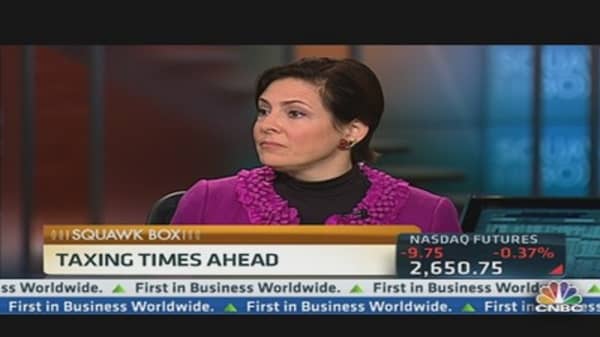"It's throwing the market into real turmoil," she said, noting that muni yields have risen about 39 basis points in recent weeks compared with a 29 basis point rise in Treasury yields.
Lebenthal also said brokerage firms have been telling investors to sell all fixed-income securities after the huge gains they've had this year to avoid much higher capital gains tax rates next year. That, Lebenthal said, has added to the downward pressure on muni bond prices.
While Lebenthal does not expect a tax fix for the automatic spending cuts and tax increases that hit on Jan. 1 to be retroactive on all munis, she does expect a 28 percent cap on deductions, a move that may make the tax benefits of munis less attractive.
(Read More: Best & Worst Trades of 2012)
Municipalities would also find it more expensive to borrow. "It's really the governors, mayors, cities and states who are going to say, 'Hey, this is going to increase our cost of borrowing. We're barely coming out of recession. You can't do this to us,'" she said.
Lebenthal said the muni market looks oversold right now and that yields should come down.
(Read More: Towns and Counties Gone Bankrupt)
California has been one municipality that has outperformed this year, Lebenthal said.
On the flip side, Puerto Rico is in what Lebenthal called a "sad situation." It has $67 billion in debt outstanding and its debt-to-GDP ratio approaches "Greek-like levels." She also said they went so far as to issue bonds to pay their interest payments.




